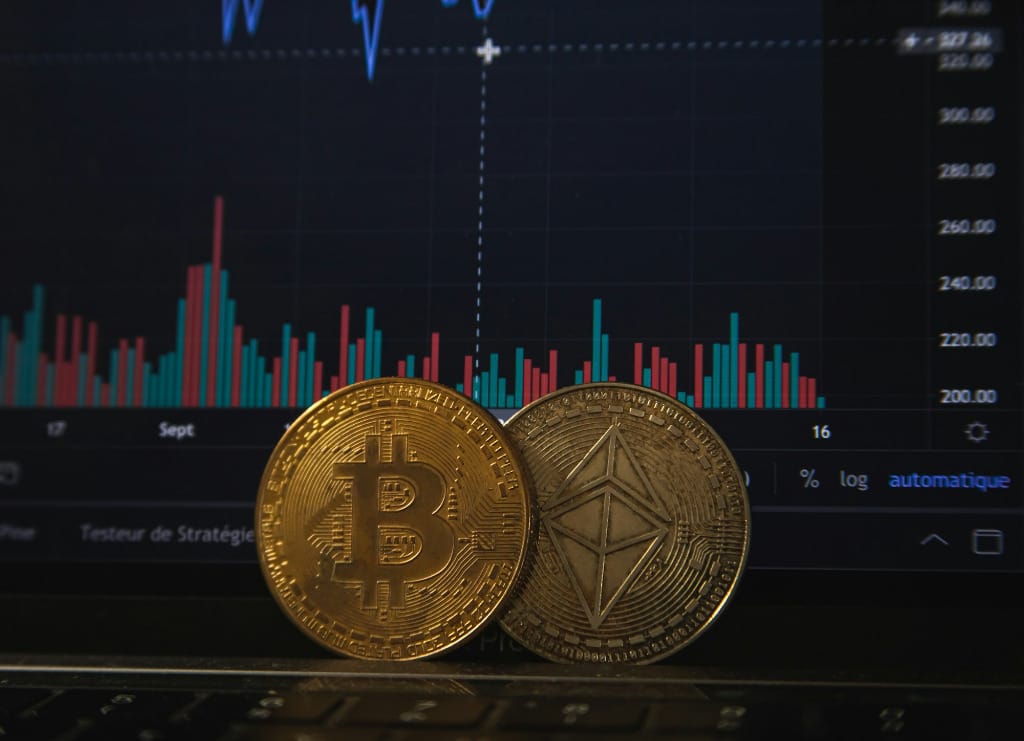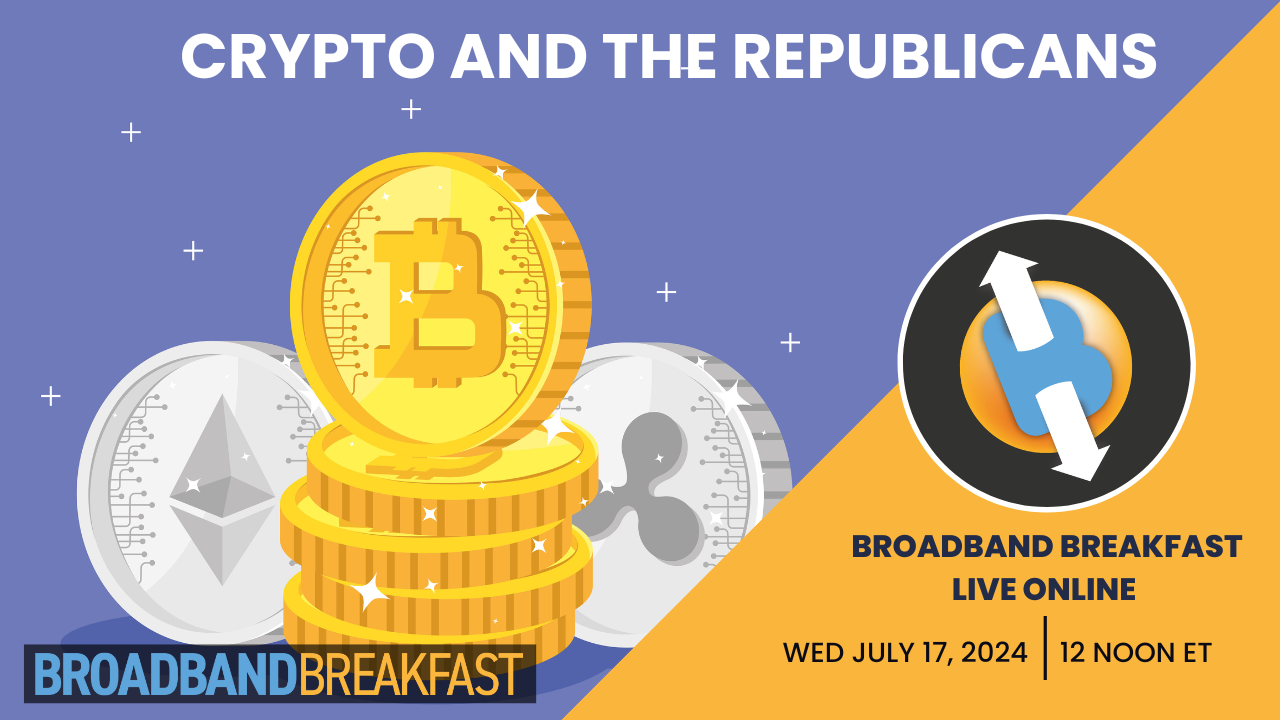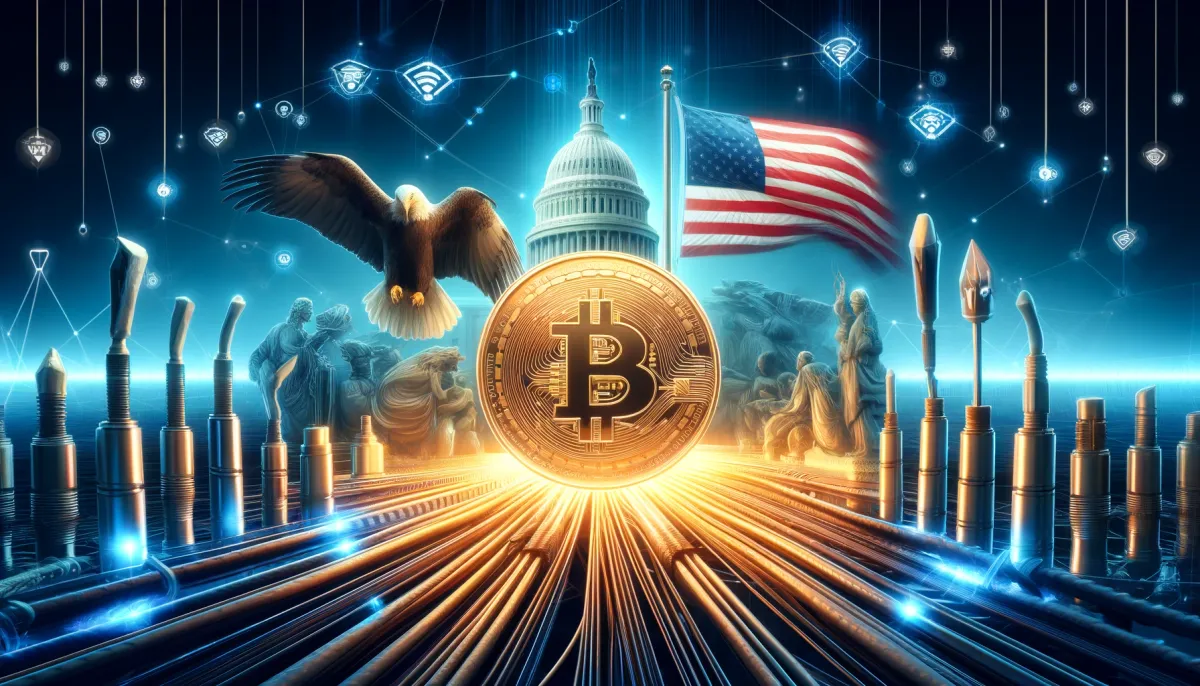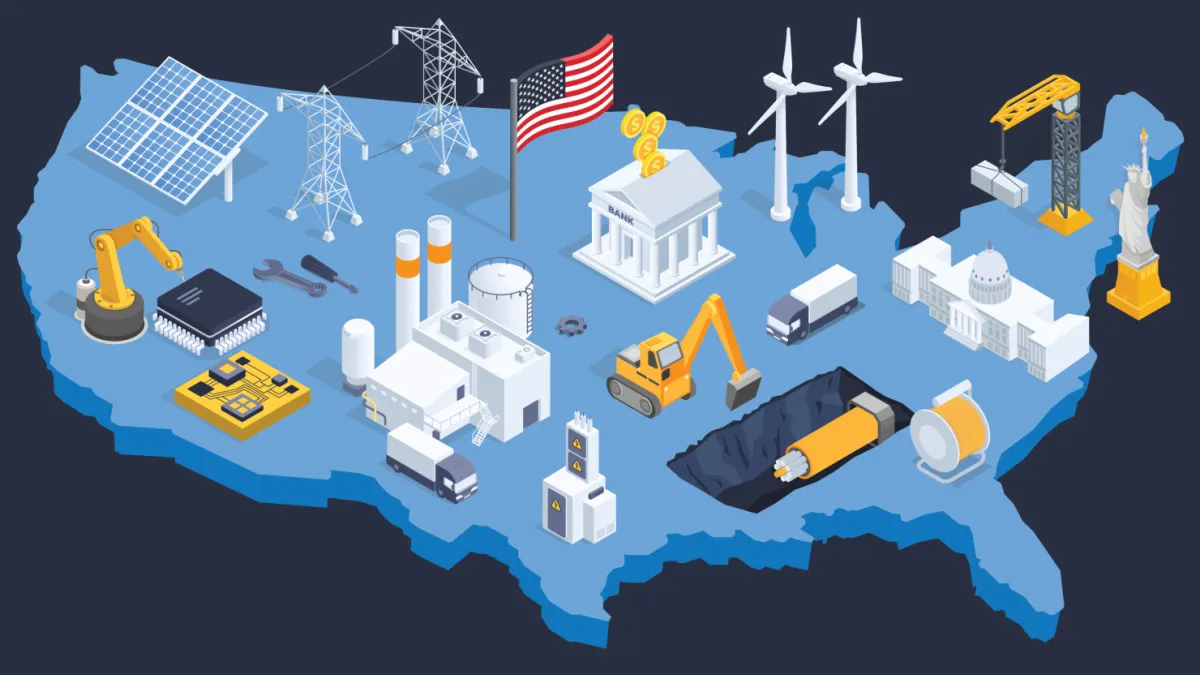In a Democratic vs. Republican Contest Over Broadband, Who Wins?
The idea behind 'Made in America' is to combine reindustrialization, national security, reviving left-behind places, cheering up blue-collar workers and reducing carbon emissions.
Drew Clark

WASHINGTON, July 10, 2024 – Broadband is one of the few areas of public life that has not been overtaken by the partisan contest between Democrats and Republicans. And even with broadband, in Washington, some issues of deployment are falling to the maw of partisanship.
The tension of this election year is increasingly palpable. Now, Washington's politicos are preparing to head to the national political conventions: The GOP in Milwaukee next week, and Democrats in Chicago mid-August. What are the broadband-adjacent issues upon which each of the parties see an advantage?
Net neutrality and privacy
Let's take two issues off the table, both of which appear to be a draw: Net neutrality and privacy. For a long time I've believed that these two issue deserved to be treated together by Congress. But Capitol Hill hasn't yet read the memo.
 Broadband BreakfastBroadband Breakfast
Broadband BreakfastBroadband Breakfast
Net neutrality - the principle that broadband providers must not preference some internet communications over others - is hopelessly and relentless partisan. Democrats are for enshrining regulations into law, and Republicans are not. Absent the obvious role of Congress passing a law on the topic, the only chance that this issue escapes continual flip-flops is the role that the Supreme Court's Loper Bright decision might play in deliberations. From the standpoint of the election, who has the advantage? Coin flip.
Somehow, privacy is the exact opposite.
 Broadband BreakfastBroadband Breakfast
Broadband BreakfastBroadband Breakfast
Twenty years ago, it was privacy rather than net neutrality that was controversial. But today, Republicans and Democrats all seem to agree that now is the time for Congress to pass comprehensive privacy legislation. Good luck with that. But, if you ever in fact get to it – might you include some simple, basic rules about not blocking, throttling, or preferencing ISP-affiliated content?
Again, from the standpoint of the election, there is no contest.
Crypto
As the GOP nears the RNC next week, partisans have already started their draft policy platforms.
In it, the GOP emphasizes what may be its most salient tech advantage over Democrats: Their embrace of cryptocurrency and the blockchain.
 Broadband BreakfastJoel Leighton
Broadband BreakfastJoel Leighton
From the Broadband Breakfast report on the topic:
The GOP platform vowed to reverse the "unlawful and un-American" crackdown on cryptocurrency under the Biden Administration, though it did not specify which policies will be reversed.
The GOP said it will work to ensure the public can have self-custody of digital assets, mine Bitcoin, and conduct transactions free from government surveillance. The platform also opposed the creation of a digital currency central bank.
Also, Broadband Breakfast Live Online will be tackling this issue: Crypto and the Republicans, on Wednesday, July 17:
 Broadband BreakfastBroadband Breakfast
Broadband BreakfastBroadband Breakfast
And don't miss the Exclusive Report on the topic, for members of the Broadband Breakfast Club:
 Broadband BreakfastBroadband Breakfast
Broadband BreakfastBroadband Breakfast
For good measure, the Republican Party platform also seeks an edge – presumably among Silicon Valley venture capitalists – against regulation of artificial intelligence. It seeks to overturn the 2023 Executive Order seeking to ban algorithmic discrimination.
If you're a crypto and/or AI-accelerationist voter, it's hard not to see the GOP as having an advantage.
Advanced energy
Yet from the perspective of preparing for the future energy and environmental challenges faced by our country (and the world), it's hard not to see the need to keep advancing green and non-fossil-fuel energy. I'm neither an expert nor an advocate of advanced energy. But it's undeniable that momentum has shifted, in a positive way, toward the need to develop cleaner energy.
For example, a year ago, Broadband Breakfast hosted the "Made in America Summit," which brought together three issues: Broadband infrastructure, green energy and domestic semiconductor production:
It’s the most dramatic effort to restructure the American industrial base in decades, if not generations. The combination of the green energy provisions in the Inflation Reduction Act (August 2022), semiconductor promotion in the CHIPS and Science Act (July 2022), and the Infrastructure Investment and Jobs Act (November 2021), will together invest more than $2 trillion of federal funds into American manufacturing, infrastructure (including broadband) and advanced energy.
Call it the Biden Administration’s Made in America initiative. The idea behind it, in the words of the Economist, ”is that with government action, America can reindustrialize itself, bolster national security, revive left-behind places, cheer up blue-collar workers and dramatically reduce its carbon emissions all at the same time.”
The summit’s sessions explored the intersection of these big-picture topics:
● (R)e-building Energy and Internet Infrastructure
● Semiconductor Manufacturing and U.S.-Chinese Tech Race
● Challenges to Reorienting America’s Supply Chain
● Making Cleaner Energy and Enhancing Green Industry
 Broadband BreakfastBroadband Breakfast
Broadband BreakfastBroadband Breakfast
The videos and reports from the "Made in America Summit" are, in an election year in which President Joe Biden's legacy is on line, more relevant than ever. Importantly, the intersection of these issues is, for broadband, not a trivial matter. For the advanced energy voter, the advantage goes to the Democrats.
Don't miss 'New Developments in Open Access Networks' on July 10 at 12 Noon ET
Unrelated to the election, you won't want to miss the regular, weekly Broadband Breakfast Live Online happening Wednesday, July 10, at 12 Noon ET.
 Broadband BreakfastJeff Bankston
Broadband BreakfastJeff Bankston
It's on the topic of open access networks:
Open access networks are gaining greater traction nationwide. In additional to major players like AT&T (including its Gigapower joint venture with BlackRock) and T-Mobile, UTOPIA Fiber and other such networks are continuing to grow. More cities and regions are committing to open access. Under this model, multiple service providers share the same infrastructure managed by a separate network operator. The promise is a cost-effective way to promote competition and spur innovation, also reducing capital costs for some entrants. But complexities are real and obstacles exist. What new developments and insights are impacting open access networks?
See the lineup and sign up (for free) to attend:
Panelists
- Jeff Bankston, Vice President of Business Development, Underline
- Isak Finer, Chief Revenue Officer, COS Systems
- Brian Hollister, CEO and Co-founder, Bonfire Infrastructure Group
- Angie Kronenberg, President, INCOMPAS
- Drew Clark (moderator), Editor and Publisher, Broadband Breakfast
And, if you're interested in this topic, don't miss Digital Infrastructure Investment in Washington on September 19, 2024: 'All-in' on Open Access.
 Broadband BreakfastBroadband Breakfast
Broadband BreakfastBroadband Breakfast









Member discussion